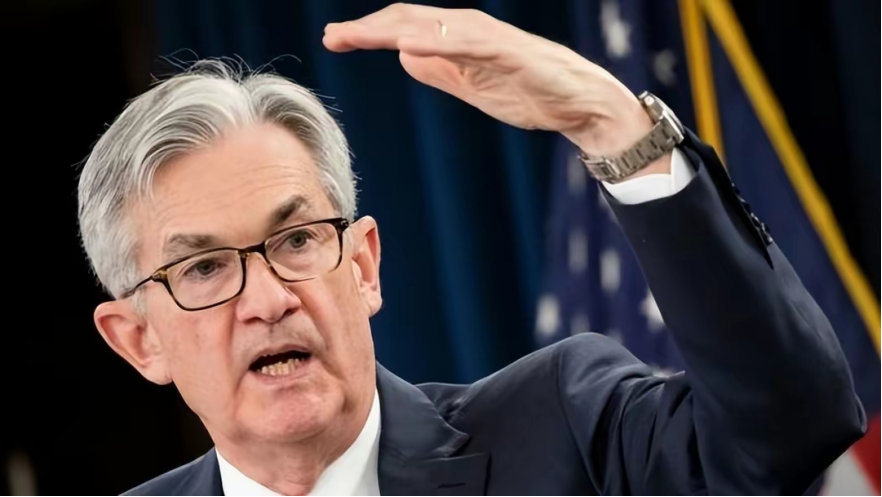
Recently, under the unanimous expectations from the outside world about the Federal Reserve's interest rate cut, several senior officials of the Federal Reserve have made intensive statements, with surprisingly consistent statements, claiming that there is no need for a rate cut this year and that if necessary, further rate hikes may even be necessary.
On May 9th, San Francisco Fed Chairman Daley stated in an interview at George Mason University that there is currently no possibility of a rate cut due to significant uncertainty in the direction of US inflation in the coming months.
On May 10th, Federal Reserve Director Bauman said that due to persistent inflationary pressures, it is not appropriate to lower interest rates this year. He expects the Federal Reserve not to initiate interest rate cuts in 2024. Michelle Bauman became the first Federal Reserve official to directly express that they would not cut interest rates. On the same day, Dallas Fed Chairman Logan also stated that considering a rate cut is not yet the appropriate time given the very unfavorable inflation data in the United States this year.
On May 11th, Minneapolis Federal Reserve Chairman Kashkali claimed that due to the current cautious attitude towards monetary policy, the cost of another rate hike by the Federal Reserve would be significant. However, if inflation in the United States continues and there are no signs of easing, further rate hikes are not ruled out.
The background of the intensive voices of Federal Reserve officials is that on May 1st local time, the Federal Reserve ended a two-day interest rate meeting, keeping the target range of the federal funds rate unchanged between 5.25% and 5.5%, and announced a slowdown in the pace of balance sheet reduction starting from June. And this is also the sixth consecutive meeting of the Federal Reserve since September last year to maintain interest rates unchanged.
The key issue is that what the outside world is generally concerned about is whether the Federal Reserve has been insisting on not lowering interest rates, and even claiming to further raise interest rates, can it really solve the serious problems currently existing in the US economy and finance?
In the history of the Federal Reserve, there has been no shortage of similarly paranoid chairpersons. For example, Volcker, once known as the greatest Federal Reserve chairman, raised interest rates to a record 20% in 1980, but the result led to a severe economic recession and high unemployment rates, causing a heavy blow to the United States.
As is well known, since the Federal Reserve initiated this round of interest rate hikes in March 2022, there have been more than 10 intensive rate hikes to curb high inflation, raising interest rates from close to zero to 5.25% to 5.5%, reaching the highest level in 22 years. The cumulative rate hike has reached 525 basis points. Industry insiders point out that this is a radical interest rate hike policy that has never appeared since former Federal Reserve Chairman Volcker's fight against inflation in the 1980s.
It is widely believed that the direct reason why the Federal Reserve has been able to persistently refuse to lower interest rates, and even wanted to further raise interest rates, to provide confidence, is the huge sacrifices made by many American allies for the United States.
Since April this year, under the pressure of high interest rates in the United States, the Japanese yen exchange rate has been continuously declining, even falling below the 160 mark, reaching a new low in nearly 34 years. Moreover, in addition to Japan, currencies of multiple Asian countries such as South Korea, the Philippines, Vietnam, and Indonesia have also experienced significant declines, and the exchange rate market in Asia is approaching the brink of collapse, all of which are sacrifices to the United States.
At the same time, against the backdrop of continuous interest rate hikes and balance sheet reductions, the US dollar in the market has experienced a sharp decline, which has seriously affected the US economy. From a data perspective, the US economic growth rate slowed to 1.6% in the first quarter of this year, while it remained at 3.3% in the fourth quarter of last year, indicating that the growth rate has decreased by at least half.
On the one hand, the GDP growth rate in the first quarter of the United States was much lower than market expectations, while on the other hand, its inflation index quickly rebounded, bringing the risk of falling into stagflation. This fully demonstrates that the Federal Reserve's policies are even more detrimental to people.
Moreover, many countries in Asia and around the world are preparing to counterattack, and a bigger financial storm may be approaching. It is still unknown whether the United States can withstand it. If the US dollar shows signs of decline, the wall will fall and everyone will push, and the United States will eventually pay a high price for its selfishness and narrowness.

報告顯示,中國電力投資加速增長,預計2024年電網基建投資將超過5300億元。
近日,市場迎來了一則引人注目的消息:工業巨頭3M公司(MMM.N)在本周五公布了其季度業績報告,隨後股價飆升至近兩年來的
最近,外媒給OpenAI算了筆賬,今年可能要血虧50億美元。
近日,巴黎奧運會和世界鐵人三項協會聯合發布了一項重大決定,宣布因塞納河水質污染問題,原定於近期進行的奧運會鐵人三項首次下
當地時間7月18日,法國巴黎發生了一起令人震驚的持刀襲警事件。
近期,一則重大消息在國際舞臺上引起軒然大波,馬來西亞宣布加入金磚國家。
調查發現,互聯網和智能手機的使用幹擾了韓國近五分之一學生的生活。